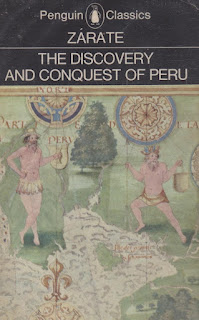
The most surprising thing about this book is its author. I couldn't get over the fact that , a school teacher from Netherlands, during the Nazi occupation of the country - managed to write a magnum opus about Ashoka - may be using the limited resources he had at that time.
That was the easy part - writing about Ashoka and Buddhism. There may have been resources available nearby - but some of the details about the landscapes of India and the customs are written with such detail that it is next to impossible for him to get those details without visiting the country. Like the place he describes the ladies wearing Jasmine and the effect it has on the men - that is a detail he cannot have imagined or read in some book on Buddhism.
That aside, the book 'Ashoka' is actually a collection of three volumes of a detailed history of Ashoka and his transformation from a wild prince to a great teacher. There are mostly elements of known history mixed with a healthy dose of fiction is what makes the book an interesting read.
My interest in Ashoka aka Devanam piyadassi (as he referred himself) - comes from the fascinating detective story of how his name was recovered from the bins of lost memory and made into a household name again. That is interesting enough. The real Ashoka, by his deeds and inscriptions, speaks a language which has not been spoken by any ruler in any country in the past 2000+ years since he died. That is awesomeness (and a little sad commentary on out history itself!).
The book takes the main stories of Ashoka's rise to power, his conversion to Buddhism and finally the last days of his life tormented by the loss of his chosen successor. The three incidents form the core of the three volumes of the book.
The book puts Ashoka as the rock against the Brahminical religion of his days and the brahmin priests who controlled and used it to extract money and power from the ordinary folks and the Kshatriyas as well. His antagonism starts with the support of the brahmin court for Sumana, his elder and contender to the throne. Bimbisara is trying his best not to plunge the country into a civil war, which is what happens the moment he dies.
Ashoka has the people's support - mainly due to his opposition to the brahmins of the court and the fact that he employs the shudras in multitudes to check this power. The struggle lasts long till his death and he loses many a friends and family to this struggle. Wytze is scathing in his critique of the customs of this old world - many of which survived (sati, child marriages etc) till the British put an end to it and some still survive in different parts of the country.
Ashoka's love for women comes forth in the first two volumes as he falls in love wherever he travels and add many a queens into his palace. Though he marries multiple times, his relations with Ashanthimitta, Devi and Karuvagi are special. His fall , when it happens in his old age, comes through another queen - Tisharakshita, who plots with the brahmins and makes the crown prince blind.
Wytze makes Ashoka a Buddhist before the Kalinga war takes place. The war is only the tipping point for Ashoka to renounce all violence - he does revert back to it when handling the Tisharakshita's treachery and burns her alive for her act.
There are episodes explaining the story and philosophy of the buddhist teachings in full. The edicts of Ashoka - along with his construction projects all across the landscape of India makes for interesting reading.
While a lot of fictional elements are added in terms of the people or the acts that are taking place, the story remains in essence the story of Ashoka and never deviates from it.
The fact that the first translation appeared after 60+ years of the original book and that it was published only now, makes for interesting read itself. Think anything Ashoka has that element of mystery associated with it - even this book.

No comments:
Post a Comment